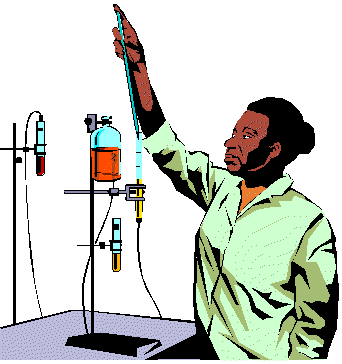|
|
|
|
|
|
|
|
|
|
|
Educational Assessment Service
W6050 Apple Road
Watertown, WI 53098
Phone: 800-795-7466
Fax: 920-261-6622
email: srimm@sylviarimm.com |
|
|
Article on Commitmentnow.com
Answers for Mothers of Teenage Girls: Why Do So Many Teenage Girls Hide Their Talents? End Up Hating Themselves? Fight Constantly With Their Mothers?
Dr. Sylvia Rimm, author of "See Jane Win" says while you cannot 'anoint' your daughter with self-esteem, you can help her earn it independently and enjoy positive life-transforming experiences. She also has tips on getting along with your teenage daughter
Why do so many teenage girls hide their talents? End up hating themselves? Fight constantly with their mothers? In this interview, Dr. Sylvia Rimm, author of "See Jane Win: A Smart Girl's Guide to Success" has advice for mothers who want to help their daughters achieve their dreams and enjoy a happier, less anguished, teenage life. She writes: "You can't anoint your daughter with self esteem. She has to earn it independently. You can, however, encourage her, cheer her on and help her understand that accomplishing excellence in any area takes major effort. We tell girls in the clinic, 'the harder your work, the smarter you get'".
Commitment: What is an I CAN Girl? How can a mother help her daughter become an I CAN Girl?
Dr. Sylvia Rimm: An I CAN girl enjoys new challenges and is active and positive in her interests. She's a "doer" rather than a procrastinator.
Sometimes I CAN Girls are positive and engaged from the start, but other times, they need encouragement from parents and teachers. Parents who believe in their daughters abilities and encourage perseverance, initiative and independence help them to become I CAN Girls.
Parents who are positive about their own lives are great role modes for I CAN Girls.
Commitment: What are some suggestions you have for mothers who want to help their daughters define and achieve their dreams?
Dr. Rimm: Mothers who want to encourage I can girls can help them to balance their heart and their head. We want them to enjoy life and to be enthusiastic, but to balance that passion they feel with using their heads to determine that what they do is good for them and good for others.
Tapping into their emotional energy by thinking and talking with parents about what they love to can help them to know about opportunities that provide exciting challenge without dangerous risk.
Learning from mistakes, perseverance and full effort help a girl build confidence. If you can help your daughter understand that failing and losing are all part of winning and fulfillment you can help your daughter to become both optimistic and resilient.
Commitment: How would define self-esteem in a teenage girl? Why do you think some teenagers have a lot of self-esteem, and others end up simply hating themselves?
Dr. Rimm: When a girl has good self-esteem she has reasonable belief that she will be able to accomplish her dreams when she applies herself.
However, even tweens or teens with good self esteem experience ups and downs. They're confronted with so many new experiences and there are so many peer pressures.
They're in the beginning process of establishing their own positive identities. It's important that mothers recognize that it's normal for teens to experience some self doubt.
However, if self doubt becomes pervasive and your daughter fears trying anything new or drops out of interests and activities, she is having serious self-esteem problems.
You can't anoint your daughter with self esteem. She has to earn it independently. You can, however, encourage her, cheer her on and help her understand that accomplishing excellence in any area takes major effort. We tell girls in the clinic, "the harder your work, the smarter you get".
Reminding girls of how easy things are to accomplish is risky because they fear effort as an indication that perhaps they aren't very capable.
Commitment: What can a mother do to ensure her daughter has a healthy sense of self-esteem?
Dr. Rimm: I have a wonderful strengths and weaknesses and changes activity in my book that would be great for parents and daughters to complete together. Often strengths and weaknesses are connected to each other and understanding their relationships helps girls admit problems and be willing to make changes instead of being defensive about problems.
For example, girls who persevere may also be stubborn. Perserverance is a strength, but being too stubborn can be a problem--it's like perserverance gone astray. Here's another one. Being well-organized is a helpful quality, but being rigid instead of flexible can be too well-organized to change. The same holds true with the opposite. Being disorganized can cause major school and work problems, but being too organized can get in the way or creative thinking where you have to get out of the box. If you don't see a box at all and won't follow rules and guidelines, your creativity is likely to get you into trouble.
Charting all these characteristics on a continuum of strengths and weakness can help kids understand that we're not asking them to change their whole selves, but only to temper some of their habits so they can be productive and loving people.
Commitment: You write about the problem of perfectionism some teenagers have. What can a parent do if their child tends to be a perfectionist? What is the balance between being achievement and results oriented, and wanting perfection?
Dr. Rimm: We do want girls to set high goals and be productive in excellent ways. If they expect perfection every time, they're unlikely to even try new opportunities because we all make mistakes in the beginning of a learning process.
Making mistakes and accepting criticism are excellent approaches to learning.
Girls need to learn the self talk that permits them to accept evaluations and understand that evaluators are trying to help them improve on their performance. They need to consider who the person is who is doing the evaluating before they decide to follow their recommendations.
A peer evaluation may only come because a peer feels competition. An adult evaluation may come because the adult has expertise that the girl hasn't yet developed. Parents need to remind their daughters that they expect them to do their best, but to get down on themselves if others do better.
When girls self-talk suggests that they feel like failures because they weren't perfect, you can rehearse a more realistic self-talk. They can either learn to say, "I didn't practice enough, but if I practice more I can do better next time" or "I really practiced hard, did the best I could, but I'm still disappointed in my performance. I guess I'll have other opportunities or I guess I have more to learn".
It's important for girls to hear their parents handling criticism and making mistakes without becoming totally discouraged.
Commitment: One of your subheads is "If Your Self-Esteem Depends on What Others Think of You." Isn't it natural that our self-esteem depends on others to some degree? How can a mother help her daughter have self-esteem that can weather the ups and downs of peer relationships?
Dr. Rimm: Others always contribute to a girls self esteem, but adolescent girls can often feel destroyed by a careless comment made by a thoughtless, mean or jealous peer.
Girls need to decide whether comments made about them are justified and whether the comments are coming from people they value.
For example, Martha Aarons, flutist with the Cleveland Orchestra remembers coming home from middle school crying daily because she was taunted. She loved classical music and opera and didn't care about makeup and clothes. When she joined a youth symphony orchestra she found friends who shared her interests and when her peers matured in high school, they appreciated her talent and all the taunting disappeared. Suppposing she had dropped out of music because of the taunting. Her talent would have been lost. Her parents helped her find an environment where her talent was valued.
On the other hand, girls need to consider the source. If someone calls your daughter a name she doesn't deserve, you need to talk that through. Sometimes kids are mean to people because those girls have been mean to them. The victim doesn't remember being mean first because the responding meanness didn't happen at the same time. Girls need to think about their own behavior and whether they're hurting other people intentionally or unintentionally.
All girls need friends and some positive feedback. No girls can expect all positive feedback. It's important for girls to realize that they can't please everyone, but to continually examine their own behavior as well as that of others.
Feeling smart in some ways and being strong, kind and helpful build good self esteem.
Commitment: What are some positive transforming experiences teenage girls can have that will impact their life?
Dr. Rimm: Our successful women indicated most frequently that winning in competition was remarkably motivating and exhilarating. They remembered those winning experiences and they provided confidence. Many of the women also commented on learning from their losing experiences, so both contribute importantly to the optimism and resilience needed by girls today.
Travel, camp or living in another country for a short period of time seemed to add a creative perspective to girls' lives. Their travel experiences mainly took place during the high school or college years and were sometimes transforming for them.
Altruistic volunteer activities were frequently mentioned as life changing and participation in team sports and extracurricular activities like speech and debate were pivotal.
Many successful women thanked specific teachers as being crucial in their lives and over and over again they extended their appreciation to their parents or other adults who inspired them.
Commitment: What are five things a mother can do who wants her daughter to enjoy a happier, more fulfilling social life? Are there ways to avoid the common problems?
Dr. Rimm:
1. Deemphasize popularity. Replace that with the importance of some good friends if only a few.
2. Encourage your daughter to host her friends at home. Sponsor the snacks and the drug free fun atmosphere. You can get to know and enjoy her friends as well.
3. Encourage their daughters to find friends based on shared interests and values.
4. Give your daughter the opportunity to expand her friendships to other arenas beyond school, e.g. camp, music, debate, sports, etc.
5. Be sure your family shares in activities which involve helping others. Girls feel good by doing good. At least three or four times a week, have dinner as a family and before eating, take turns talking about how grateful you are for something or someone in your life.
Commitment: What suggestions do you have for mothers who find that their teenage girl fights and disagrees with them a lot more than in the past? How can mothers enjoy a good relationship while their daughter is in the midst of so much change?
Dr. Rimm: Give your daughter plenty of time to talk to you. Listen to what she and her friends are saying.
Don't give your opinion about everything,but be sure you are clear about the important things--no drugs, theft or violence.
Emphasize the positive. Stay united with your daughter's other parent in setting boundaries and limits. Try not to get into a cycle of overpunishments. Remind her that her parents are on her side and not against her.
Plan mother-daughter fun activities that fit with your daughter and your interests. Museums, theater, occasional shopping, eating out, etc. provide positive bonding experiences that will keep your daughter seeing you as a role model instead of a competitor or punisher.
Commitment: Do you think some girls hide their strengths and talents? If so, what can be done to help a teenager come out of hiding and show who she is to the world?
Dr. Rimm: Many girls hide their strengths and talents if their peer or educational environments are not hospitable to their strengths. It's important for parents to find safe places for their daughters where their strengths will be valued.
A sports team, church group, special interest club or a socially supportive friendship can help girls to use and develop their strengths and interests.
Commitment: Chapter 3 is "Feel Smart by Releasing Your Brainpower." What are five ways a teenage girl can feed and exercise her brain?
Dr. Rimm: Girls can feed and exercise their brains by
(1)learning in and out of school(academic learning)
(2) expressing their creativity through arts, science, music, debate, drama, writing
(3) taking on social leadership roles in their schools or extracurricular activities
(4) by becoming involved in athletic teams and
(5) by contributing to others in altruistic ways.
You can see there are more than five here because I combined the many potential social and academic interests that girls could pursue.
Commitment: Who are some women in history that you feel are great role models for girls to study and learn more about?
Dr. Rimm: My book, How Jane Won, includes stories of 55 successful women who were inspiring to me. They came from every walk in life. They persevered, challenged themselves and reminded me over and over of their goal to make the world a better place.
See Jane Win for Girls includes many quotes by these successful women to inspire the girls who read my book. These successful women often quoted what they had learned from their own parents, so parents should remember that what they say to their daughters makes a difference and that even holds true if their daughters aren't necessarily responsive at the time.
Girls do benefit by reading biographies of successful women. Many of the women in our study did just that.
To purchase See Jane Win: A Smart Girl's Guide to Success click here.
About the Author: Dr. Sylvia Rimm is the author of many books including See Jane Win, a New York Times and Wall Street Journal best-seller. She is director of the Family Achievement Clinic in Cleveland, Ohio, and a clinical professor at Case Western Reserve University School of Medicine. Dr. Rimm is well-known for her syndicated column On Raising Kids, her longtime national public radio show Family Talk with Sylvia Rimm, and her frequent appearances on NBC's Today show. She is also a mother of four and a grandmother of nine.
|






